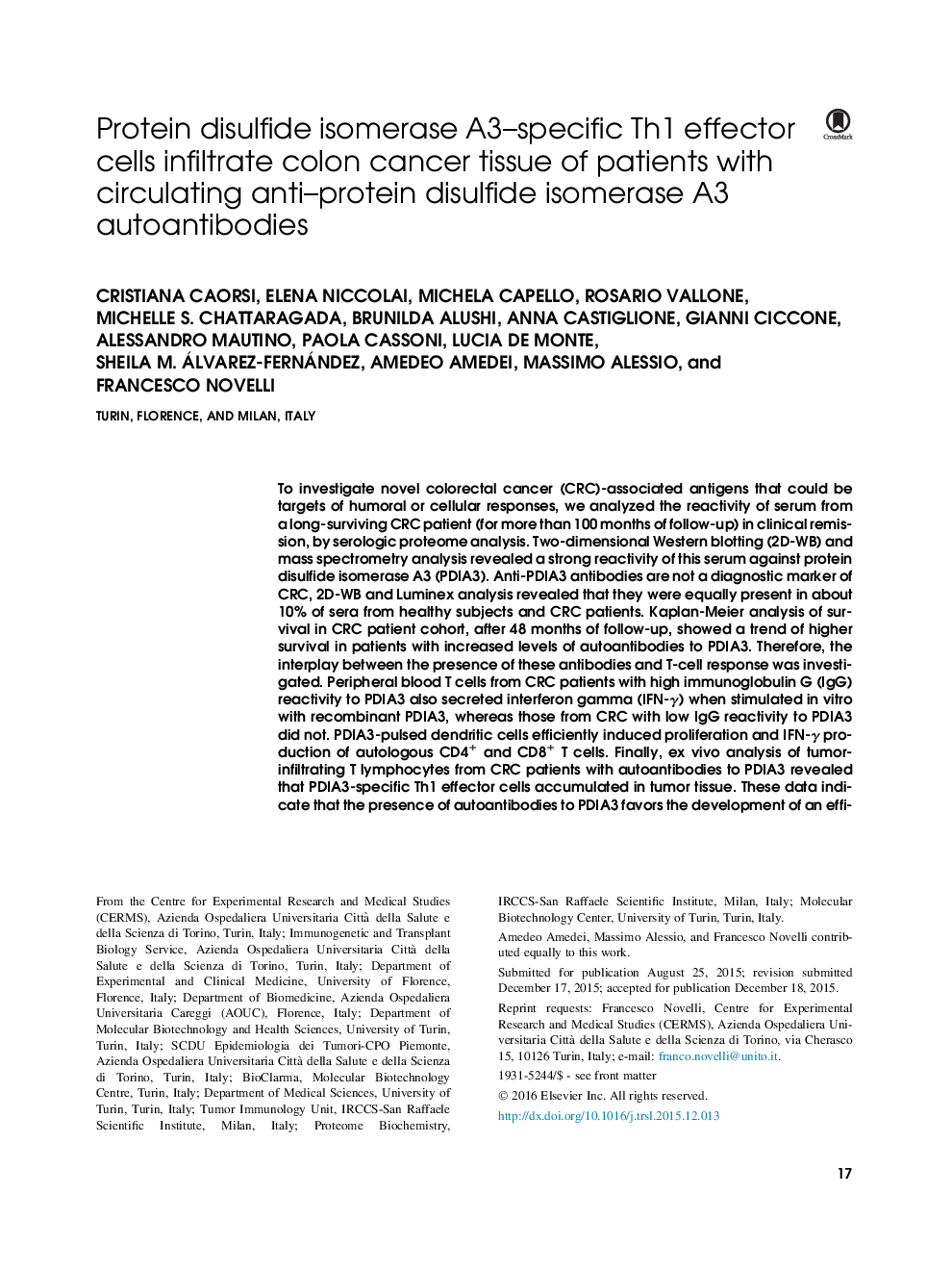| Article ID | Journal | Published Year | Pages | File Type |
|---|---|---|---|---|
| 6156002 | Translational Research | 2016 | 14 Pages |
To investigate novel colorectal cancer (CRC)-associated antigens that could be targets of humoral or cellular responses, we analyzed the reactivity of serum from a long-surviving CRC patient (for more than 100 months of follow-up) in clinical remission, by serologic proteome analysis. Two-dimensional Western blotting (2D-WB) and mass spectrometry analysis revealed a strong reactivity of this serum against protein disulfide isomerase A3 (PDIA3). Anti-PDIA3 antibodies are not a diagnostic marker of CRC, 2D-WB and Luminex analysis revealed that they were equally present in about 10% of sera from healthy subjects and CRC patients. Kaplan-Meier analysis of survival in CRC patient cohort, after 48 months of follow-up, showed a trend of higher survival in patients with increased levels of autoantibodies to PDIA3. Therefore, the interplay between the presence of these antibodies and T-cell response was investigated. Peripheral blood T cells from CRC patients with high immunoglobulin G (IgG) reactivity to PDIA3 also secreted interferon gamma (IFN-γ) when stimulated in vitro with recombinant PDIA3, whereas those from CRC with low IgG reactivity to PDIA3 did not. PDIA3-pulsed dendritic cells efficiently induced proliferation and IFN-γ production of autologous CD4+ and CD8+ T cells. Finally, ex vivo analysis of tumor-infiltrating T lymphocytes from CRC patients with autoantibodies to PDIA3 revealed that PDIA3-specific Th1 effector cells accumulated in tumor tissue. These data indicate that the presence of autoantibodies to PDIA3 favors the development of an efficient and specific T-cell response against PDIA3 in CRC patients. These results may be relevant for the design of novel immunotherapeutic strategies in CRC patients.
